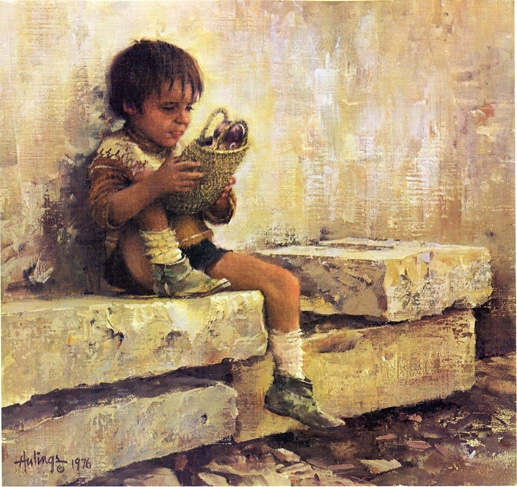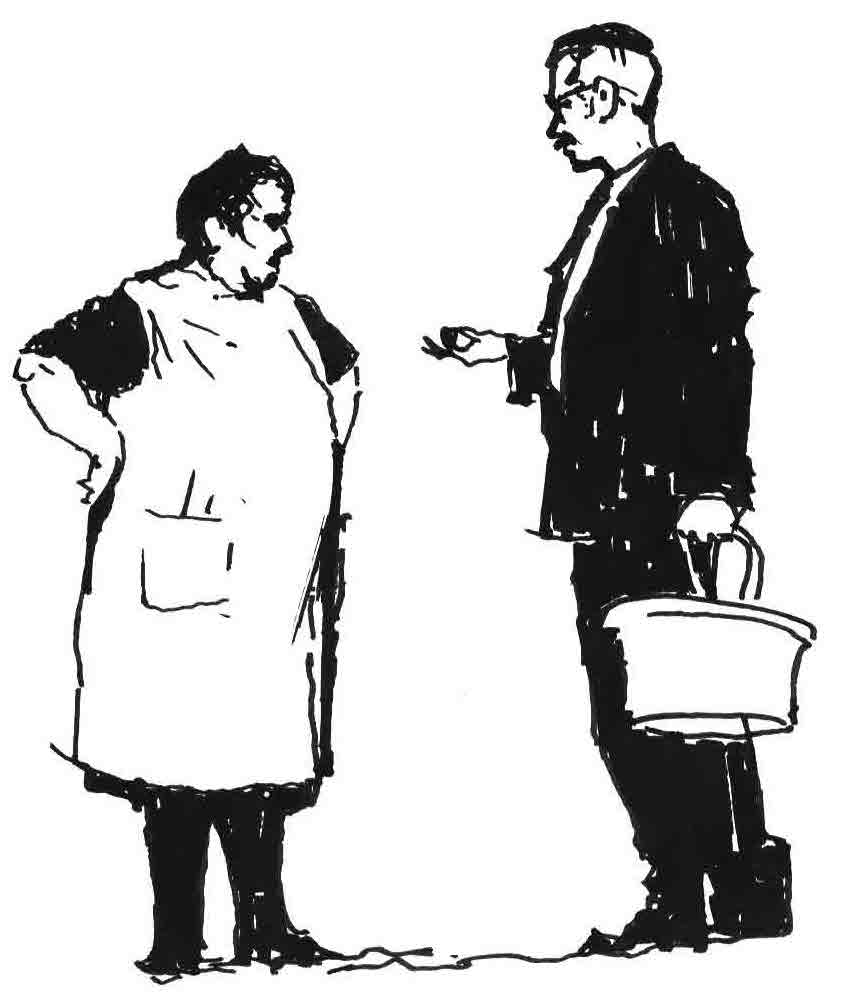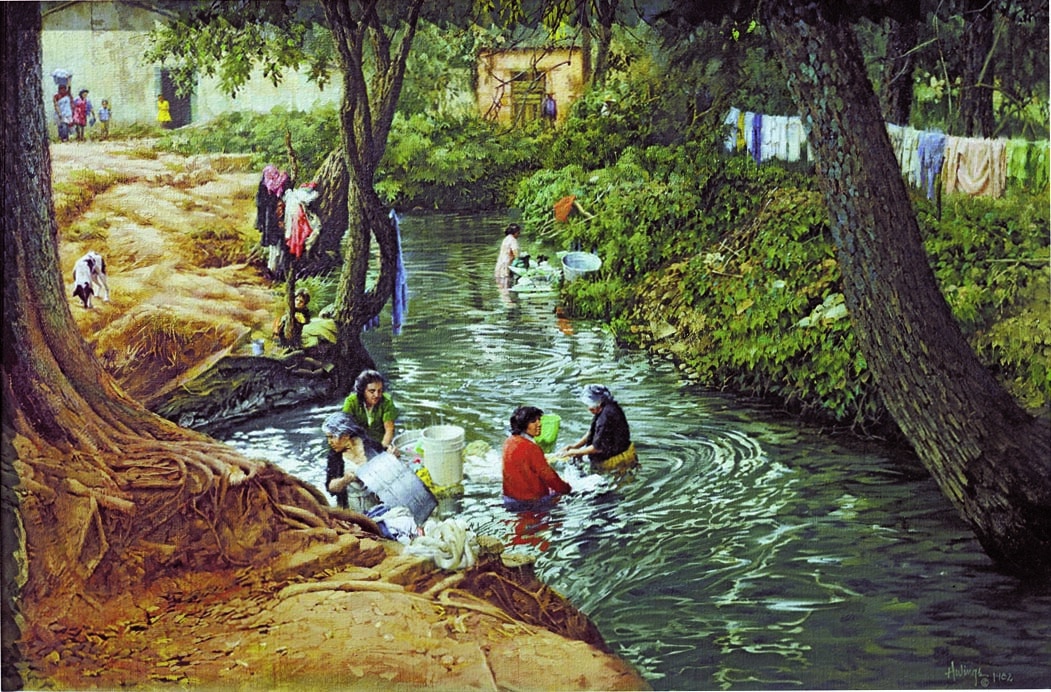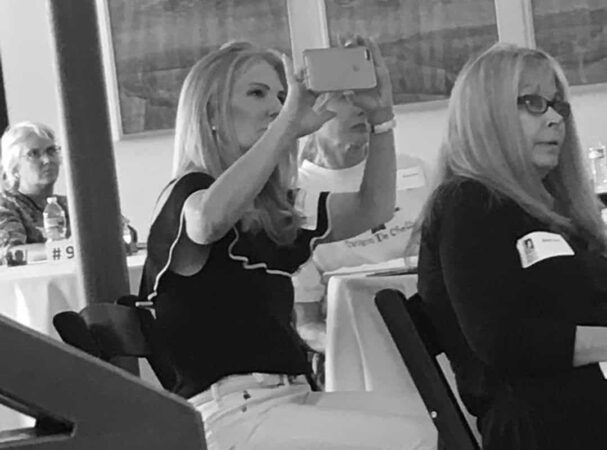Seth Godin recently wrote: “You can keep track of what you get in return, or you can make art.”

As a great admirer of Seth Godin’s work, this quote stirred up a conversation that I and many I know well have wrestled with. I make art and run two businesses, one of which is dedicated to supporting creative professionals and artists to create work that is both meaningful and supports them financially. Do I want to make art that challenges, that informs, that inspires and is a true expression of my experience? Of course. Do I want to make money and access to the security, generosity and adventure that it affords me? Of course.
This often feels like a conflict – even a contradiction. We often separate the part of our self that has a bank account and desires that money would allow us to pursue from the part of us that wants to have an impact on the world. How do you make a difference if you can’t pay your bills and save for the future? How do you create work that is a true expression of your authentic voice if you need someone to not only accept it, but to pay for it as well? How can you be a visionary when you have basic human needs?
On the other hand, how can it be otherwise? One thing I’ve come to realize is that many of the best questions that are dealt with by art are experienced as contradictions. This one is no exception. So, the trick is to turn the dynamic between our creative work and our need for the life that money provides from a battle to a dance. This question is too often one that we struggle with, rather than approach from playfulness and creativity.
So, how can we do that? Here are a couple of places to look.
Engage with money. Stop pretending that it’s evil, it doesn’t exist, or that you’d rather live in a world where it doesn’t matter. Denying that we possess a desire for money denies us the ability to engage with it in a thoughtful way. Money is complex. You can avoid it or you can get curious about it.
It’s a process – not a destination. We will always be able to examine how our gifts will support our desires and vice-versa. This is a lifelong journey. It will forever be something that we will have the opportunity to do better, that we will make mistakes in the pursuit of and will offer possibilities we’ve never thought of.
Know thyself. Money is very simply a mechanism created for the exchange of materials and services. Whatever happiness, pressure, anxiety, satisfaction, elation or danger you experience when you have or don’t have it is your relationship to it – or differently said, your beliefs. These beliefs have often been set into place from our experiences at a very young age and left unexamined ever since. Does it make you feel successful? Free? Shameful? Worthy? Like a sell-out? Does money equal value? Talent? Security? Many of us habitually pursue money hoping it will provide something that we no longer actually believe that it will. I want to make money so that I can have creative freedom. Does money provide you with creative freedom? Well, no… I don’t believe that.
Pursue a vision. What do you really want that money allows you? After revisiting your default relationship to money, we have the opportunity to take a look at the experience of our life that your restless soul can be inspired to pursue. Is it travel? Family? Adventure? Home? Impact? Every person has a version of themselves that they know they’re capable of being and have not yet achieved. What is yours?
Have a number. How much money do you need to make to meet all of your financial commitments? How much money do you want to make to have the life you envision? If your answer to either of these questions is ‘more’ or ‘a lot more,’ it likely always will be. Having a real goal allows you to base your choices on something objective rather than on how you feel things are going, which will invariably shift from one day to the next.
Create sexy goals. Most people don’t make goals because they are… well, they’re boring. We often like to imagine a life without problems. Something better but reasonable. The trap here is that your motivation is tied to your dissatisfaction. As you make progress, your problems lessen and so does your drive. Sexy goals are unreasonable and have nothing to do with your problems and everything to do with your potential. Simply stated, the pursuit of reasonable goals will always be experienced as a struggle, while the pursuit of unreasonable goals will be experienced as an adventure.
When embraced, discussed, examined and approached with creativity and vision, we have the potential to create prosperity that is as unique an expression of ourselves as our bodies of work.








Challenging thoughts. It’s encouraging to read from people who believe artists can be financially successful.
Thanks, Kyle! We wouldn’t be doing this if we didn’t know that artists can run sustainable businesses with the right tools.
Part of being an artist is being a business person and that means, in addition to creating your desired “product”, you have to be aware of the market/ needs and wants, finances, publicity, logistics, etc… Many students I’ve encountered take none of this into account before embarking on a career. I too was never informed of the business needs of an artist and learned along the way. One of my illustration heroes was N.C. Wyeth and he continually lamented his need to support his family which meant churning out illustrations and leaving his “easel painting” for spare time efforts. Money is needed to live, a painting on an easel doesn’t pay the bills. So, “YES” to all of the points in the article. Art is a balancing act but a beautifully crafted one where the practitioner is fortunate to have a life filled with creative expression.
Steven, thank you for your thoughtful comment and wise words. Art as a career can be a difficult path, but with the right tools, artists can be successful or at least make a decent living. I’m glad you like our article, and I hope that you pass it along.